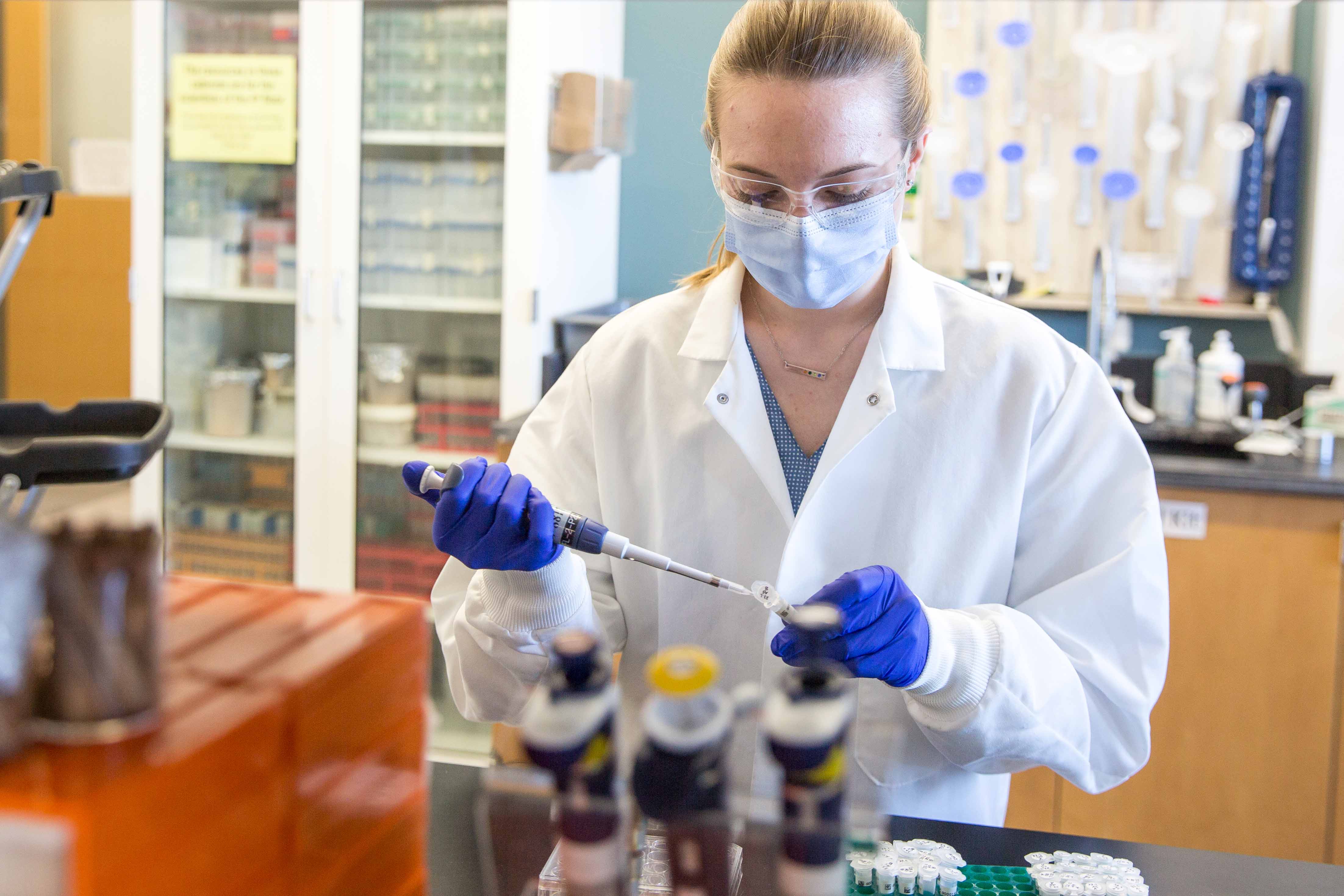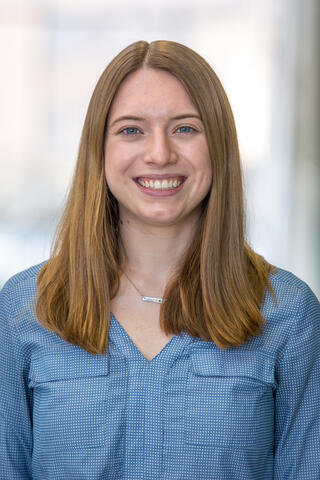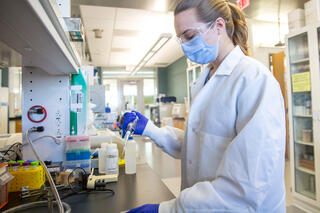
Our graduate students and postdoctoral researchers play an enormous role in the transition to a sustainable, resilient, and affordable energy future that is centered on social and economic equality. From lab experiments to field work to classrooms, these leaders of today and tomorrow are our catalysts for energy discovery.
In this series, we learn more about what inspired these talented researchers, what brought them to their field of study, and the questions that drive their work at the Great Lakes Bioenergy Research Center (GLBRC).
This week we spoke with Amy Enright, a graduate student in Jason Peters’ lab at the University of Wisconsin–Madison. Amy is from Stillwater, Minnesota and studied microbiology for her undergraduate degree at the University of Wisconsin-La Crosse.
What did your path to UW-Madison look like? Did you always know you wanted to go to graduate school?
I worked in a research lab during my undergrad at UW-La Crosse. After that, I came to Madison to work in Judith Kimble’s biochemistry lab because I wanted to know if I enjoyed doing research full-time. While in the Kimble lab, I worked with a graduate student to research Caenorhabditis elegans, which is a transparent nematode, or roundworm. I really enjoyed it and decided to attend graduate school here.

You were a student-athlete during your undergrad at UW–La Crosse. How did you balance the academic and athletic parts of your life?
For me, being a gymnast in college gave me a welcome break from academics. It was important to do what I loved, and I found a balance that worked for me. If we ever had a week off from practice, I often found it harder to concentrate on my schoolwork without gymnastics as an outlet. I also found balance in my Spanish minor, which worked a different part of my brain than my science classes.
You were also a water quality research intern one summer during your undergrad. What did you gain from that experience?
I worked for the U.S. Geological Survey to monitor health of the Mississippi River over time. It was a valuable experience because it gave me insight into how a lab works. I gained teamwork and communication experience and realized how much organization was necessary to track thousands of samples across processing steps.
Can you tell me about your current research in a way that you would describe to friends or family?
In Jason Peters’ lab, I am essentially trying to make bacteria better at making biofuels. When microbes get stressed, their biofuel yield deceases due to toxins in the plant material (called “lignocellulosic hydrolysate”). We don’t know which genes might be important for toxin resistance in the microbe I study, Zymomonas mobilis. To discover this, I use CRISPR-based functional genomics to understand the stress response. Eventually, I will test the microbe against different toxins and antibiotics to target specific gene functions. Understanding gene function will allow us to engineer strains of microbes that are more resistant to these toxic compounds, resulting in higher biofuel yields.
How did you come to be a part of Jason Peters’ lab, the Microbiology Doctoral Training Program, and GLBRC?
I knew I wanted to research eco-friendly applications for microbiology, so the GLBRC and the Peters Lab are perfect fits for me. There are also many exceptional microbiologists to work with at UW-Madison, which was another major draw.

What do you enjoy about being a graduate student at UW–Madison?
I like that it is a very close-knit community. I run into people I know all the time!
Do you have any favorite memories?
I have several! My graduate program has a Halloween event every October called “Bactoberfest,” which has a different theme every year. I am also involved in organizing student recruiting events, which is a fun and rewarding way to give back to a great graduate program.
What do you hope to accomplish after your time at GLBRC and UW–Madison?
I am still figuring out what I want to do with my career. I love teaching and enjoy being a TA and research mentor. Industry is also appealing to me because you get to see your research applied directly to solve real-world problems.
What advice do you have for graduate students who may want to get involved in your field of research, especially at GLBRC?
I would recommend that interested graduate students browse GLBRC's website to look for inspiration. Everyone at GLBRC and WEI is working toward the same goals, but we are all coming at it from different angles, so you’re bound to find something that piques your interest.
Are you involved with any organizations on campus?
I was involved with GLBRC’s Diversity, Equity, and Inclusion committee and am currently part of their new mentorship program. I also volunteer with the Microbiology Doctoral Training Program’s student recruitment team because I had fun during my recruitment process and want others to have the same experience.
What do you do when you’re not working?
I coach middle school gymnasts a few times a week after work. It’s a great way to stay in touch with the sport and the community.